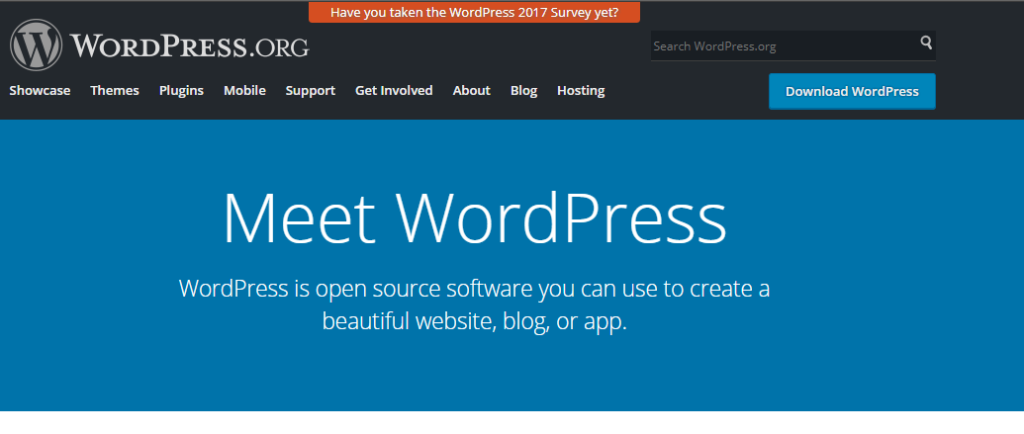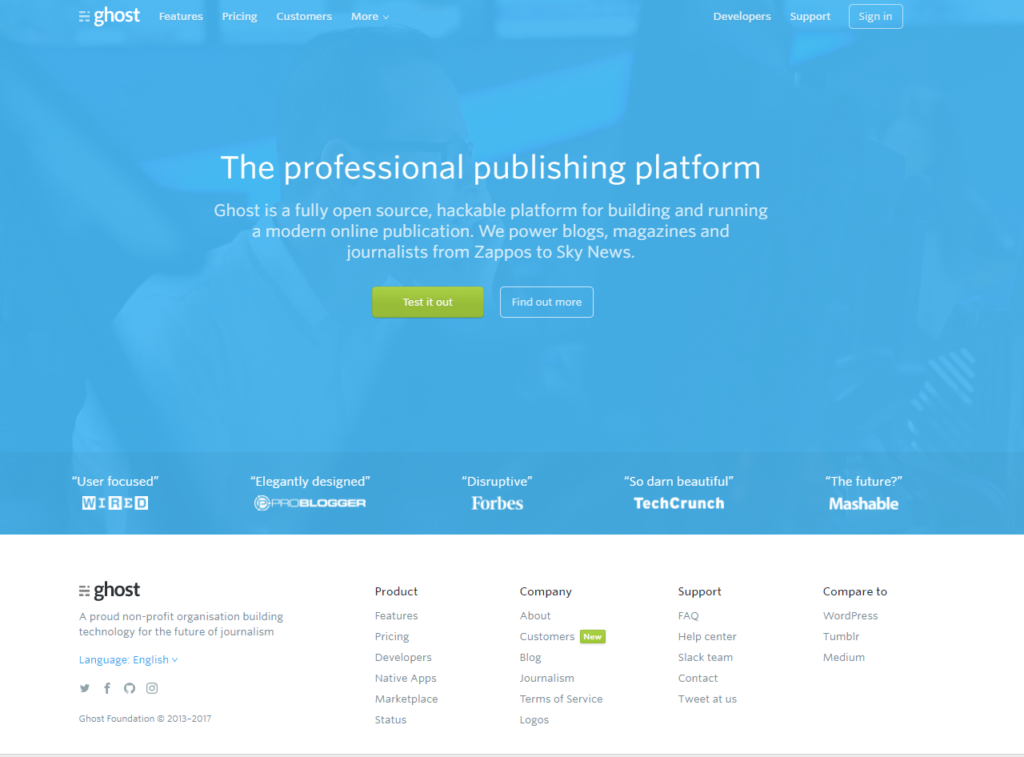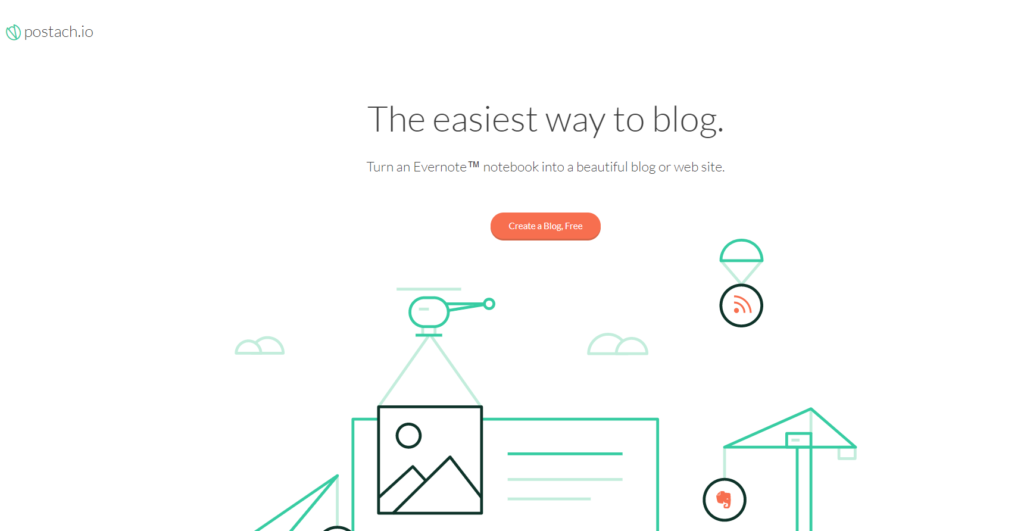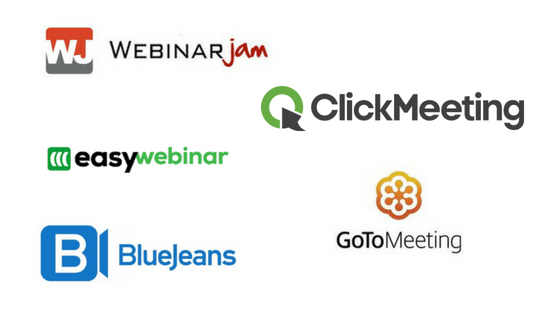- The Top 17 Direct Mail Companies - June 11, 2025
- The 11 Best Landing Page Builder Software Tools [2025] - June 11, 2025
- Instapage vs Leadpages vs Unbounce vs Clickfunnels - June 11, 2025
Today, there are over 152 million blogs on the internet. And sometimes it feels like there are that many choices for blogging platforms too.
Starting this blog was a turning point in my life
I was a great digital marketer and I always loved writing. So I married those two passions and took the plunge. I started Growth Marketing Pro with my friend and colleague, Hailey.

Today, Growth Marketing Pro is not only one of my greatest sources of happiness but it also generates all of my income. Today, the blog sees over 50,000 visitors per month and makes us over $60,000 per month.
Maybe you’re thinking of starting a blog yourself. The good news: it takes less than 20 minutes to set one up.
But before you begin writing furiously, you need to choose the best blogging platform to create and host your blog on the internet.
Unfortunately, it’s a bit confusing because there are so many options. Choose wisely. It’s quite annoying to move your blog from what platform to another once you’ve started.

Table of Contents
What to Consider When Choosing a Platform
There’s some important things to consider when choosing the right platform for creating and hosting your blog:
- Ease: Blogging should be about making great content, not battling with software or settings.
- Customization: If you want your blog to look a certain way, you have to be aware of the limitations of certain blogging platforms.
- Support: Will it be easy to get help if/when you need it?
- Search optimization: If you want people to discover you serendipitously via internet searches, there are some blogs that offer much better “search engine optimization.”
- Price
- Features: Some of the blogging platforms offer all-in-one solutions including website domain name and web hosting; the others just provide the Content Management System (CMS) suitable for blog publishing. Based on your goals, you need to choose the features you care about.
I’ve done the research on each of the major blogging platforms. In fact, I’ve used nearly all of them at one point or another in my career. Below is how each of them stacks up.
WordPress.org is still my favorite blogging solution. Learn to start a WordPress blog here. But keep reading if you’re considering others.
Want to learn the secrets to increasing your blog’s web traffic?
Click here to sign up for my free SEO Bootcamp:
What Are the Best Blogging Platforms for Creating and Hosting Your Blog?
1. WordPress.org

When it comes to choosing a blogging platform the first option that comes to mind is WordPress.org. In my opinion, WordPress wins the award for best all-around blogging platform.
In fact, this blog is a WordPress blog!
Believe it or not, WordPress powers 29% of the internet. By that, I mean WordPress.org powers 29% of the internet. Note that WordPress.com is not what people are talking about when they mention “WordPress.” Curious about the difference?
Read WordPress.org vs WordPress.com: What’s the Difference?
Because so many people use WordPress, there are hundreds of help websites for it and developers everywhere understand it in case you run into trouble.
WordPress excels in search engine optimization. Your blog posts are automatically organized in a way that Google crawl them (read and categorize them). This means that people across the internet are more likely to discover your content in Google searches.
WordPress also has a whole host of plugins — in fact there’s over 53,291 as of today. These plugins require no code to implement and can do things like:
- Make your blog look completely different
- Add analytics so you can see user behavior
- Collect email addresses from your visitors with an online form builder
- Further improve your search engine optimization
- Sell products to visitors
- Host webinars to educate and engage with your users (Read more on which softwares we like here)
- Create beautiful, high converting landing pages with any number of landing page builder plugins
- And just about anything else you can think of
Finally, WordPress blogs are beautiful. There are hundreds of themes to choose from so that your blog looks exactly like you want.
WordPress is one of the simplest blogging platforms.
Our guide on how to set up a WordPress blog is best-in-class and perfectly simple. Launch your blog in 20 minutes.
Pros
- Suitable for beginners and professional blogs like CNN.com
- Over 50,000 themes and plugins available
- Search engine friendly; certain plugins make WordPress’ search optimization even more powerful from a search engine optimization perspective
Cons
- Not as easy as a drag-and-drop editor like Weebly, but not very difficult
Types of blogs From fashion blogs to high powered Fortune 500 companies and everything in between, WordPress is a great solution.
Price Free, but you have to pay for hosting. Fortunately, we have a $3+ per month hosting deal thanks to our partnership with BlueHost!
Link WordPress
Want to see if a domain is available for your WordPress blog? Use this widget to check.
2. HubSpot CMS
With HubSpot CMS, you have all the tools you need for content creation, distribution, and analytics, all in one place.
The tool allows you to create and edit blog posts, landing pages, site pages, and emails with ease, whether you choose from one of our pre-built templates or start from scratch. You’ll be backed by a world-class content delivery network to serve your content all across the globe in the fastest way possible.
HubSpot’s content management software tool has nice features like A/B testing, but it’s particularly powerful when it comes to features like personalized content and smart content. If you’re using HubSpot’s marketing platform, it also works seamlessly with forms, your email list, and database management.
There are also some great out-of-the-box features designed to help with content creation — like the ability to natively host video and add forms and calls-to-action in the video using the native editor, along with video analytics and a YouTube analytics integration.
Some of the features marketers will love on a platform level are the ability to partition content so it’s easier for teams to work together. Additionally, you can publish content behind passwords and easily personalize content. Best of all, there’s high-quality security and hosting, which takes the worry out of the technical side. And, of course, you get top-notch analytics since everything is working together.
Pros
- Combined publishing – merges all the publishing tools in one
- Drag-and-drop
- Smart content – CTAs that change based on the user and their past behavior.
- Google AMP Support
- Built-in CDN & SSL
Cons
- Locked into one platform
- Slight learning curve
Link: Try Hubspot CMS
3. Blogger

Now owned by Google, Blogger is one of the longest-running blogging platforms on the Internet.
While the most blogging platforms offer paid features, Blogger is completely free. This platform is perfect for the beginners. It’s very easy to set up a blog and begin publishing here.
The other advantage is deep integration with Google.
You may choose the photos for your posts from the images stored within your Google account; there’s integrated Google Analytics for site stats tracking, and you can even make money on your posts by using Google AdSense option which automatically displays relevant targeted ads on your blog.
The Blogger users get unlimited space for their blogs, and the number of blogs owned by each user is also not restricted. You may even run your blog on a custom domain, which was a feature they once didn’t allow.
While the customization options are limited here, the users still have some room for the creativity. It is possible to choose from the number of the templates and to customize them by digging into HTML and CSS.
You can even edit the blog’s code to include third-party advertising.
Blogger also offers a lot of built-in tools, called widgets, which are actually Google Apps integrated with the platform. There are clocks, calendar, Google Maps, Google Translate, Twitter, Instagram, YouTube widgets among the others.
Pros
- Unlimited traffic and storage space for free
- No fees for adding a custom domain
- Google AdSense integration
- Built-in analytics
- Strong search engine optimization (it’s owned by Google after all)
Cons
- Limited number of features
- Limited customization
Types of blogs Best for small “hobby” blogs or “about me” blogs
Price Free
Link Blogger
4. Medium

A lot of famous folks and influencers have chosen Medium for their blogging platform.
Created by the Twitter founders, this platform uses microblogging approach. There is one standardized template you use to publish all your posts.
It is possible to choose a grid or stream based layout for your publication, as well as add your logo, background color, or image to the header.
However, the customization options are very limited, so you’d better focus on what you write.
Medium has the robust WYSIWYG editor which recognizes key commands and formatting characters, correctly displays styles and more.
This makes it easy to use. But Medium is much better for pure written blogging than anything visual.
Once a post is published, Medium makes it simple for the other Medium readers to discover the content. The recommendations are based on the users’ interests. The readers can also easily subscribe to authors they enjoy. But Medium posts aren’t naturally very discoverable by Google, so SEO is just okay.
There are built-in analytics tools and inline commenting. You may also share your post draft with the interested users before it goes online.
Unfortunately, there is no option of using the own domain for your blog, so you can’t get the full control of your content. So you’re stuck on medium.com.
Pros
- It’s easy to reach the existing Medium audience
- Built-in analytics
Cons
- Direct competition with other writers
- Impossible to use your own domain
- Just okay for search engine optimization
Types of blogs Not for business blogs or blogs that want to make money because of the lack of search optimization. Best for personal blogs.
Price Free
Link Medium
5. Ghost

Ghost is another blogging platform very focused on written content. It’s extremely minimalistic and thus clutter-free.
However, it’s much easier to use Ghost if you or someone on your team has an engineering background. The editor involves code, plus most people customize the look and feel of their Ghost blog in code. There are few plugin or theme choices out of the box.
Ghost installation is much more complicated than WordPress. You need to have the strong technical background to make it work on your domain.
Ghost(Pro) is a simpler option as you instantly get the fully working site with it. However, there is no free plan of hosted version like on WordPress.
The other thing that you should keep in mind about Ghost is the lack of the visual editor. Instead, the posts are written in Markdown which is a text-to-HTML writing syntax that translates your text into the formatted output.
Thus, you should have some idea of how to use HTML and CSS if you move forward with Ghost.
Ghost is an open source content management system made for midsize companies and up — who have engineers that can help with the look and feel of the blog.
Pros
- It is seen as the fastest blogging platform
- Easy writing
- Clean and simple
Cons
- Free version is difficult to setup
- The number of themes is limited
- No plugins
- You must have a technical background to use Ghost
Types of blogs Most businesses and personal bloggers can use Ghost. However, given that some coding is required to use Ghost, you need to be a proficient engineer.
Price Free to install on your own domain. Paid plans start at $19 per month and include 1 blog and 50,000 unique views/month.
Link Ghost
6. Weebly
Weebly is not a blogging platform out of the box, but it can be transformed in one. In actuality, Weebly is a website builder — meant for creating just about any type of website.
All setup job is done by dragging and dropping the required elements like pictures, paragraphs, videos, buttons, maps, contact forms, and more.
What you see in the site builder is what you get on your pages (WYSIWYG).
Updating the site is easy as well. Weebly includes a lot of extensions that can be added if necessary — related to ecommerce, design changes and analytics. Of course, blog functionality is among the plugins.
If you ever need advanced site features like forums, membership options, integrated advertising, or file uploads it’s pretty easy to add them as well.
The best thing about Weebly is that it supports apps made by 3rd party developers. The app center is constantly growing making it easy to find the extensions for any task.
The free version of Weebly includes weebly.com subdomain and 500 Mb of storage which is not much if you want to share images with your visitors.
Weebly offers a number of beautiful themes for all kinds of blog categories: business, academic, education, e-commerce, writer, musician, and so on.
They not only look great but also very responsive and perfectly adapt to mobile devices. And it is possible to customize them making your site to look different.
Pros
- Drag-and-drop support
- Affordable e-commerce functionality
- A lot of extensions and third-party apps
Cons
- The pages are difficult to manage if you have more than 10
- There isn’t great SEO optimization
Types of blogs Better for ecommerce sites than for blogs.
Price Free. Paid plans start at $8 per month and include unlimited storage and free domain.
Link Weebly
7. Postach.io

Do you use Evernote for organizing your personal information? Then you’ll be happy to find out that there is a way to blog right from this application.
Postach.io is a simple blogging platform directly connected to Evernote. How does it work? You create Postach.io account and connect it to your Evernote account.
Then you specify which notebook will be used for writing and storing the blog posts. That’s it.
The best thing about Postach.io is that all your content is actually backed up on your computer and can be reached from Evernote.
The blogging features of Postach.io are basic. The user gets a free yoursite.postach.io domain. By default, your name and surname are used as a subdomain, but you can choose the one you like in the blog settings.
It is also possible to customize blog appearance with a number of themes, to add social profiles and cover photo, to write a blog description, to specify the purpose and category. F
or the small monthly fee, you are allowed to use your own domain as well as to protect your site with the password.
There are also some useful add-ons that can be easily added to the blog. You can power your site with Disqus comments, add analytics to your site with Google, as well as configure automatic sharing of published posts to Twitter, a Facebook page or profile. Social sharing is implemented just by ticking posts with ‘share’ tag in Evernote.
Overall, postach.io has limited use cases and should not be used by serious bloggers.
Pros
- Evernote integration
- Social sharing
- Google Analytics support
- Password protection
Cons
- Few opportunities for customization
- No advertising possibilities with a free account
Types of blogs For starting your online notebook. Not for serious blogs.
Price Free. Paid plans start at $5 per month and include a custom domain, password protection, more themes, source code access.
Link Postach.io
8. Wix

Like Weebly, Wix is a website builder — it’s not a blog out of the box. But still, people do use it to power their blog.
Wix is one of the most beautiful blogging platforms.
Fully powered by HTML5, this website builder offers stunning templates for every niche you can imagine. The choice of the niche is made during the registration.
Once you tell Wix what site do you want to build it offers thematic templates for every taste.
Artists, photographers, graphic designers and other creative people are among the most loyal Wix fans because there are so many different animation options, photo galleries, video players, and so on.
With a free account, you get 500 MB of storage and the ability to create the unlimited number of static pages. Secure hosting and a mobile site are also included. The posts are created within intuitive blog editor with drag and drop support.
You can edit drafts, schedule upcoming posts, tag and categorize the posts to help the readers easily find what interests them.
Wix also offers video and photo galleries that could be embed into the posts. And you can even embed HTML code to add quizzes, polls, surveys, and other interactive content.
Pros
- Great looking themes
- Themes are customizable
- A lot of widgets for adding new features
Cons
- Free plan has too many restrictions
- Wix Ads on a free plan
Types of blogs Good solution for fashion blogs and ecommerce websites.
Price Free. Paid plans start at $4.50 per month and include the custom domain. To remove Wix ads and increase the storage/bandwidth the $8.50 per month plan should be used.
Link Wix
9. Penzu

Most people who start blogging want to attract as many readers as possible. Best go with a blog platform that specializes in search optimization like WordPress if this is your goal.
But there are a couple blogging platforms that behave more like diaries — for people who don’t want their thoughts to be discovered by others.
Think about pregnancy or food diary, the reflective journal where all daily emotions and activities are covered, private dream journal that makes you feel happy, and so on. This is when Penzu is useful.
The service offers handy blog editor with a focus on writing. There are not too many possibilities for design customization, but basic things like colors and fonts can be changed so that your journal can look the way you please.
Mobile support is also included in the free account, so you can write your thoughts from any device. And don’t worry about the post preservation, since autosave option is also in place.
The main focus of Penzu is security. All posts are private by default. You need to use one password to access your journal and the second for editing and adding the new posts.
And if you’re really concerned about privacy, the paid plans also include encrypted journal locking. Also, Pro plans and tags for your posts, individual entry locking, PDF Export, starring entries, custom writing reminders, version history, trash recovery, and more.
Pros
- Possibility to have private blog
- Mobile apps for easier blogging
Cons
- Pure customization options
- No encryption for the free accounts
- Not a real professional blog, more for writers who want to keep a diary
Types of blogs Penzu is more of a personal diary. Not for serious blogs.
Price Free. Paid plans start at $2+ per month and include multiple journals, added security, reminders, and journal customization.
Link Penzu
10. Tumblr

Tumblr is positioned as one of the simplest blogging platforms. As the official site says ‘It is so easy to use that it’s hard to explain.’ It’s a totally free service which offers yoursite.tumblr.com address for your blog.
There is also an opportunity to connect your own domain name.
Tumblr is not intended for the people who like to write, as it has the really tiny text field. In fact, Tumblr is more focused on a short content and thus, attracts those who are visually-oriented. It stays in the middle between the classical blogging platform and the social media feed.
It’s very straightforward to post links, mp3s, videos, Spotify tracks, photos, and any content you could possibly imagine. You can instantly see the similar posts from the other Tumblr users and share them on your blog.
Apart from the posts, one can also create pages which don’t move through the feed and thus are always accessible to the visitors. The number of pages is unlimited on Tumblr.
One of the outstanding Tumblr features is the mass editor. It’s very simple to work with the dozens of posts on one screen and make some batch actions with them. For example, you can tag, untag, or change a tag on a selected number of posts which are displayed as the thumbnails.
Tumblr is not optimized for search at all. If you want your blog to be discovered, stay away from Tumblr.
Pros
- No fees for adding a custom domain
- Convenient mass editor
- Unlimited number of pages is possible
- Your posts are advertised on the similar blogs
Cons
- Limited design controls
- Bad management of the comments
- Very bad for search engine optimization
Types of blogs Only for bloggers who want to curate images (similar to Instagram) — not for serious blogs.
Price Free
Link Tumblr
Conclusion
When you are just thinking of your own blog you really have the freedom of choice.
Of course, if you’re a novice it’s important to choose the blogging platform that is easy to set up and customize. But it is always a good thing to look ahead because switching the platform is not easy when your blog is already running.
So, before making your choice, try to visualize your blog in the future.
Could it grow into something bigger, like an online store, perhaps?
Are you considering advertising option on the site?
Do you want to own all your content and have an access to it and thus, ready to buy a domain? Answers will definitely help you to choose the best option.
There’s a reason most bloggers use WordPress. It has the out-of-the-box features and flexibility to serve your needs today or however you decide to grow in the future. See the guide by clicking below.
–> How to Set Up a WordPress Blog: Easy Step-by-Step Guide <–





Hi Mark,
Nice Blog. Your blog provided me with the best blogging platforms for Creating and Hosting our Blog. Thanks for sharing such an informational post. Keep up the great work
Thanks for the nice article. Actually, this post is really helpful for the newcomer in the world of blogging. Keep Rocking!!!
I love what you and the rest of the team are doing over there at GMP. Your content is amazing, as are your plugin and educational products. Keep being awesome.
Genuinely when someone doesn’t understand after that its up to other viewers that they will help,
so here it occurs.
Very mush updated article. Thanks for sharing
Thanks for sharing this wonder post I appreciate your contribution. Bluehost is good to choose but what if a user not have a technical expertise to managing their server errors. What would you recommend?
If you’re not technical definitely use Medium! If you’re looking to grow your search traffic, you should use WordPress (and Bluehost is the cheapest option).
Very informative and up to date article. thanks for sharing.
Hmm it seems like your website ate my first comment (it was super long) so I guess I’ll just sum it up what I wrote and say, I’m thoroughly enjoying your blog. I too am an aspiring blog blogger but I’m still new to the whole thing. Do you have any tips for newbie blog writers? I’d definitely appreciate it.
Hey! Learn and do. It’s that simple. Spend 50% of your time learning and 50% of your time executing… and do that for 6 days a week for 6 months and you’ll have a valuable blog — no question.